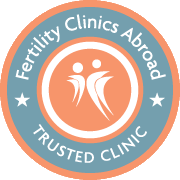Have you been wondering whether exercise is harming or helping your chances of conceiving? Will exercise prevent you from having your baby or help you enhance the effectiveness or fertility treatments? These questions are some of the things raging through the minds of many people who are having difficulty conceiving.
People who don’t have any problem achieving a pregnancy will never be able to understand how complicated life can be for people who can’t conceive easily. You have to go through endless tests, counselling, consultations at the fertility clinic, scheduled sex, ovulation hunting, and most importantly, the waiting.
It’s a hard life for most people, and exercise is the only avenue some people use to let off the stress and tension of the whole situation out of their body and mind.
In the past, some healthcare professionals maintained that vigorous physical activity could reduce the chances of getting pregnant. Nowadays, we now know that this statement is not completely true. Some people may not respond well to exercise, leading to complications in their reproductive system while others enhance their reproductive abilities by working out. Your goal is to identify the type of exercises that can improve your fertility.
Research has shown that regular moderate-intensity workouts can increase fertility and the ability to have a baby using Assisted Reproductive Technology such as In Vitro Fertilization (IVF). Research has also revealed that moderate workouts can help reduce the risk of miscarriages and improve the chances of successfully having a baby with Artificial Reproductive Technology (ART).
Also, studies have shown that you can reduce the risk of ovulation problems by performing vigorous exercises. Obesity or being overweight can contribute to infertility in men and women, but you can cut down your weight by exercising to increase your chances of conceiving.
Research also suggests that regular exercise can help control Polycystic Ovarian Syndrome (PCOS). PCOS is a condition that frequently leads to infertility as it causes irregular periods or absence of menstruation. By working out regularly, obese or overweight women suffering from PCOS can increase ovulation frequency which can help regulate their menstrual cycles. With normal ovulation, the chances of conceiving and having babies improve significantly.
It is well known that obese men tend to have low sperm quality and reduced fertility. You can increase your fertility potential by performing regular workouts to lose weight and improve the quality of your sperm.
Stress, depression, and many other psychological conditions can impair your ability to conceive. Exercise is an easy and effective way of clearing your mind of clutter so you can focus on what matters in your life.
Exercises
International guidelines recommend a moderate-intensity workout for a minimum of 30 minutes every day if you are trying to conceive. Activities such as dancing, brisk walking, elliptical and gardening are great choices. You may also include swimming, running, jogging, and cycling to your routine, but be sure to contact your doctor for advice before starting any workout program.
Obese and overweight men and women may also engage in moderate-intensity workouts for about 35-45 minutes every day to improve fertility and enhance their general health.
However, you must not overdo it. High-intensity workouts can throw off your plans completely off the tracks. If you have a stable menstrual cycle, you may not have any trouble exercising. But people who are having a hard time conceiving while exercising can take some time off their workouts to determine whether the exercise is affecting their fertility.
Remember to contact your doctor before starting any workout program while trying to get pregnant. And when you start exercising, don’t be too hard on yourself. Also, ensure that you don’t hurt yourself and your baby when you get pregnant by avoiding workouts that are strenuous or put you and your child at risk.

Dimitrios Dovas, MD, DFFP
Dimitrios is the Clinical Director of Newlife Center of Reproductive Medicine, in Thessaloniki Greece.











